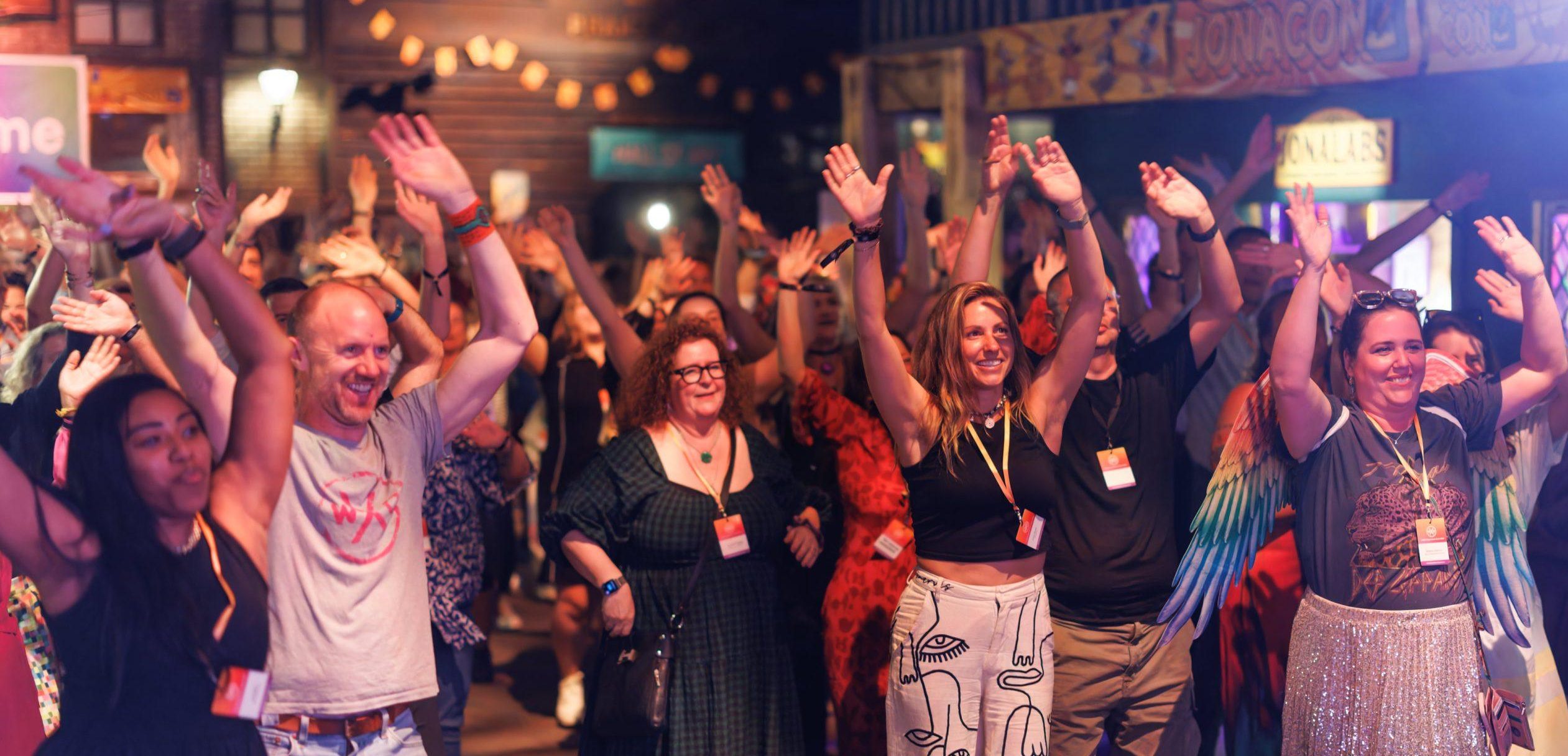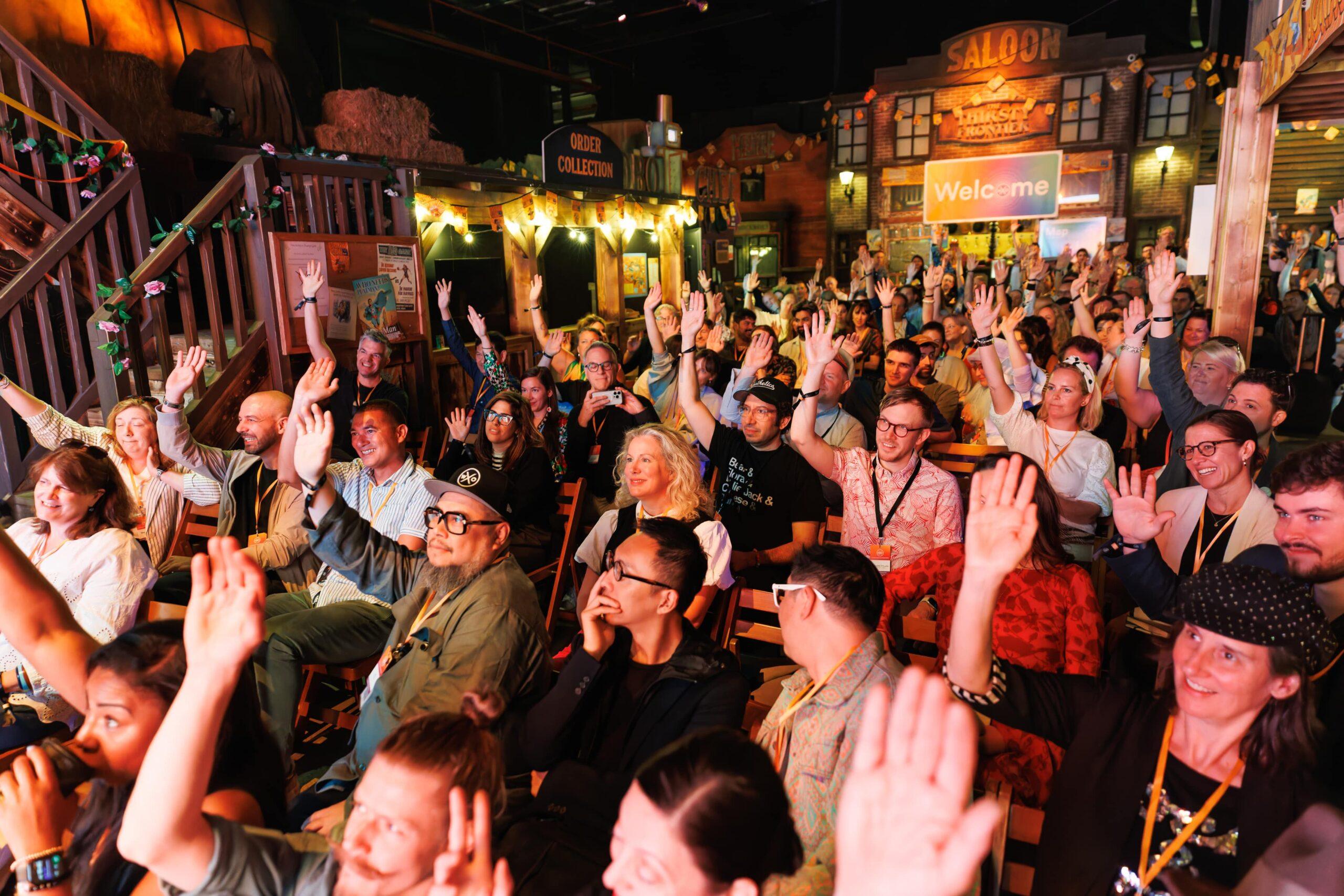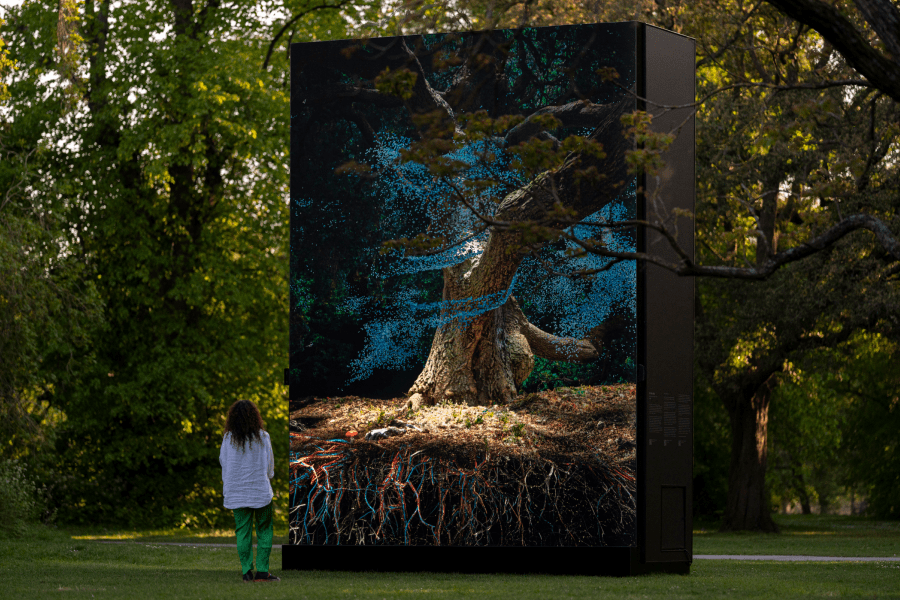Why worry about seats at the table, when you could build a whole new ecosystem…?
This was just one example of the radical positivity on display when the Women in Experience (WiX) working group kicked off with the first of its six planned sessions, created to transform conditions for women working in the Experience Economy.
From Switzerland to Seattle, Poland to Portland, and London to Los Angeles, an impassioned – and impressive! – cohort of over 40 female-identifying experience practitioners gathered around a sticky note-shaped bonfire, united in their mission to purge negative experiences from the past and draw up plans for a more equitable, diverse and inspiring Experience Economy in the future.

It was the first step in the newly minted WiX roadmap, which set out its ambition to:
- Harness the power of the cohort to identify challenges and co-create solutions
- Engage the experience industry to show the value add of women’s unique perspective, share successes and recommend actionable allyship
- Widen out the circle to other underrepresented groups
Who Was There?
The Zoom room was led by WXO Co-Founders Sheena Patel, founder of YonderBeyond, and Nasya Kamrat, founder of spatial storytelling agency Faculty, as well as Kevi Louis-Johnson, creative director at Faculty and Founding Member of the WXO. Stephanie Riggs, immersive trailblazer and another WXO Co-Founder, also led the group in a collective catharsis of prior negative experiences in the workplace.
They were joined by exceptional female voices from across the Experience Economy and the world – including WXO members Laura Hess, Lori Buscaglia, Lisa Morris, Jane Nielsen, Sophie Shaw, Meredith O’Shaughnessy, Julia Eisenloffel, Aga Szóstek, Amy Hua, and many more besides – whose energy, enthusiasm and ideas were palpable as the conversation progressed. Of those who attended, 40% have been working in the experience industry for between 6-10 years.
What Are The Challenges?

In a survey circulated before the event asking whether the Experience Economy is equitable, 75% of respondents said that on a scale of 1-5 (one being not at all, 5 being extremely), they would answer 2 or 3.
When prompted why, their answers included:
“Mostly white men are the decision makers (hold the purse strings), which makes creating diverse experiences challenging.”
“I have multiple examples of either being completely cut from the conversation, or being ignored in the press, even when I lead the project. It can be frustrating. Women are still less visible and less celebrated for creativity than men.”
“Still too many male leaders, CEOs and directors.”
“Whilst the industry is more well intentioned than others, I have experienced many instances when peers have repeatedly taken credit for my work or received less support to meaningfully develop my career path compared to male colleagues.”
“I think perhaps women working to create experiences are spread out over many titles and organizations but may not be networking in Experience Economy circles.”
And when Riggs asked the group to share their experiences, frustrations and challenges, an all too depressingly familiar range of stories emerged including:
- Negative bias as to whether we have children or not
- Being called aggressive where men are called decisive
- Not being invited to work events (or strippers being hired as appropriate entertainment)
- Men taking credit for the work of female colleague – or women not being credited for their work at all
- Questions in meetings or press coverage being addressed to (sometimes junior) male colleagues
- Business meetings that turned out to be dates in disguise
- Comments on appearance
- Assuming women will take on the labour of caring, dealing with employees’ personal issues, or planning events – or just make the coffee
- Verbal, emotional and sexual harrassment
Overall, a lack of female sponsors and mentors, a lack of internal and external networking opportunities, and an expectation to align with male-defined leadership norms appear to be holding back women in the Experience Economy from achieving their full potential.
What Are The Potential Solutions?

Even at this early stage, our cohort were bursting with potential ideas to tackle these blockers. A snapshot of the many solutions proposed included:
- Women supporting women with funding and opportunities, creating a network that can advocate for each other
- Educating male allies on their leadership style, language and actions
- Creating mentoring circles to lend support up and down the career ladder
- Creating a directory of female experience practitioners, supported with private discussion groups over a platform such as Slack or Discord
- “Being our own army”, recognising and calling out bias where we see it
What’s Next For WiX?

The next global gathering will take place soon and will continue to co-create solutions and dive deeper into the topics raised here. To be first in the loop when the date is released, register your interest to join WiX, subscribe to the WXO mailing list, and keep an eye on our events calendar.
And at the WXO, as well as continuing to support these events, we’ll be looking to learn how we can implement WiX’s suggestions within our own community. Can we offer a filter in our Black Book so people can more easily find and connect with female mentors, for example? When we launch our member forum, can we create channels for women in experience to connect? And how can we move away from a “talking heads” format to encompass other ways of communicating and presenting in our own events?
We’ll close on the words of Nasya Kamrat:
“We came together to build a community of women who, rather than feeling pitted against each other for relatively limited seats at some table dominated by white men (albeit many accomplished, inspirational, and supportive white men), are now coming together to build our own (way cooler) table. Hell, maybe we’re even saying, who needs a stupid table when we could be building a whole new ecosystem?!
To each and every one of you who came, shared, and took that first (and long overdue) step to build a more diverse and equitable Experience Economy, thank you. We’ve only just begun.”
Nasya Kamrat
If you’re a female-identifying experience practitioner who’s interested in getting involved, register your interest to join WiX here.





